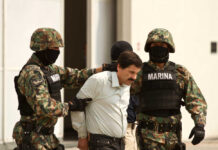
In a recent development in the case involving former President Donald Trump’s alleged election interference, a critical witness testifying about Fulton County District Attorney Fani Willis’ relationship with Nathan Wade has been called into question. CNN senior legal analyst Elie Honig has dismissed the credibility of this witness, Terrence Bradley, a former law partner of Wade, who had been ordered by the judge overseeing the case to testify about the relationship.
Honig criticizes Bradley’s claims of not remembering specific details as “ridiculous,” which undermines his credibility as a witness. Honig points out that Bradley, being a lawyer and an officer of the court, should have been able to provide more substantial information about recent and important events. However, Bradley’s repeated responses of “I don’t recall” or “I was speculating” raise doubts about the reliability of his testimony.
According to Honig, Bradley had previously claimed in text messages that the relationship between Wade and Willis started before Willis hired Wade. He even provided specific details about their meeting at a Continuing Legal Education (CLE) conference. However, during the testimony, Bradley now says that he was speculating and doesn’t recall the actual circumstances of their meeting. Honig finds this inconsistency in Bradley’s statements and questions why someone would fabricate specific details and later claim to have been speculating.
During the questioning, Bradley was asked if he passes on lies about his friends, to which he responded with uncertainty, saying he could have but doesn’t recall. This line of questioning aimed to challenge Bradley’s credibility further and raised doubts about his integrity in a case of national importance.
The article also highlights the concerns raised by attorney Ashleigh Merchant, who represents one of Trump’s co-defendants, Michael Roman. Merchant questioned the basis of Bradley’s claims about the timing of Wade and Willis’ relationship, to which Bradley admitted that he was speculating and didn’t have any concrete information.
Additionally, the article mentions the alleged financial benefits that Willis received from a lucrative contract where Wade received a higher salary than other prosecutors and supposedly took her on luxury vacations. These allegations were brought forward by Roman’s defense team, who sought to disqualify Willis from the case. It is stated that Willis falsely claimed in January that she paid all the special prosecutors the same hourly rate as Wade.














